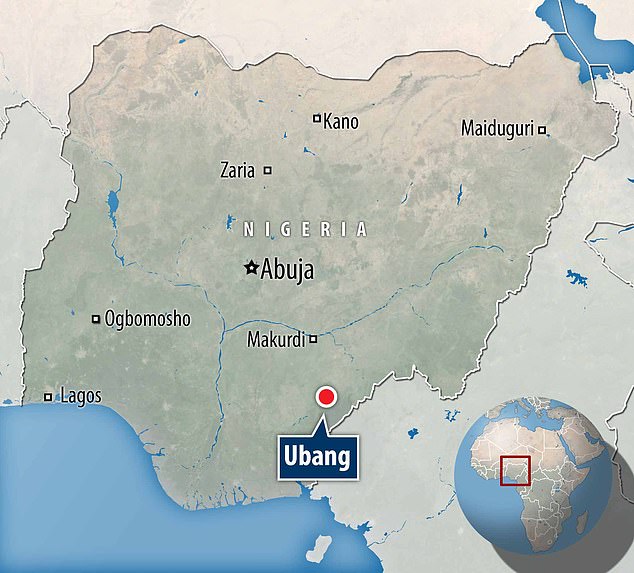They say men are from Mars and women are from Venus – and never has that been more true than in the village of Ubang in southern Nigeria, where males speak one language and women speak another.
In a fascinating tradition, the Ubang people use different words depending on their gender.
Children in the community pick up the ‘female’ language first, because they are predominantly raised by women throughout childhood. However, by the age of 10, boys are expected to adopt the ‘male’ tongue, which locals believe to be a sign of maturity.

In Ubang in southern Nigeria, males speak one language and women speak another, though both are discouraged at the village school (stock image)
A BBC documentary investigated the unusual dialects and interviewed anthropologist Chi Chi Undie, who has studied the community.
She said: ‘There are a lot of words that men and women share in common, then there are others which are totally different depending on your sex. They don’t sound alike, they don’t have the same letters, they are completely different words.’
Women use the word ‘okwakwe’ for dog, whereas men say ‘abu’. The Ubang word for ‘clothing’? Women call it ‘ariga’, while for men, it’s ‘nki’. The term ‘kitchi’ is the male word for tree, but females describe it as an ‘okweng’. And water is ‘bamuie’ for males and ‘amu’ for females.

Children in the Ubang community pick up the ‘female’ language first, because they are predominantly raised by women throughout childhood
UBANG LANGUAGE DIFFERENCES
Dog – Okwakwe (female) / abu (male)
Tree – Okweng (female) / kitchi (male)
Water – Amu (female) / bamuie (male)
Cup – Ogbala (female) / nko (male)
Clothing – Ariga (female) / nki (male)
Bush – Deyire (female) / bibiang (male)
Goat – Obi (female) / ibue (male)
Source: BBC / Olaniyi Adebimpe
Advertisement
If a male or female child uses the language assigned to the opposite gender beyond a certain age, they are perceived to be ‘abnormal’, according to the BBC.
There are several theories behind the origins of the gendered vernaculars, though the most popular is tied to religion.
Locals believe God planned to give each ethnic group two languages, but after creating two different dialects for the Ubang community, found there weren’t enough languages to go around the rest of the world.
The languages have been passed down through generations, but as they haven’t been written down, there are concerns they might be lost in the future.
Younger members of the Ubang community tend to include English words in their dialect, and schools often discourage students from using the Ubang language in the classroom.
Despite these concerns, Chief Oliver Ibang of the Ubang Traditional Ruling Council believes the Ubang language will survive against the odds. He told the BBC: ‘There is no way the language will die off because, if the language dies, that means people in Ubang are no more existing.’
Source link : https://www.dailymail.co.uk/travel/travel_news/article-10012577/The-African-village-men-women-learn-different-languages.html












